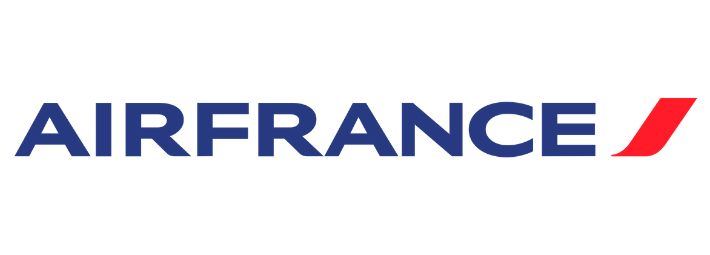

"We have been using assessment tools for over 50 years to measure personality traits, motivational levers, and cognitive abilities of our candidates and collaborators. Scientific studies show: this complementarity in evaluation provides a robustness that we observe every day."
Bérangère Abiven
Head of the Evaluation Devices and Practices department within the Selection and Recruitment service
Bérangère Abiven has been working at AIR FRANCE for 6 years, initially as a psychologist in charge of selecting pilots for Air France and Transavia, and now responsible for the Evaluation Devices and Practices department within the Selection and Recruitment service. Her role consists of updating and optimizing Air France's evaluation devices while ensuring their relevance and effectiveness; and in being responsible for the training of recruitment officers as well as managers and HR leaders of the company on issues of conducting recruitment / selection interviews. We take a look at the use of our psychometric evaluation tests at Air France.
A strong culture of evaluation at AIR FRANCE to support the employability of its employees
Air France, which will soon celebrate its 90th anniversary, currently has around 37,000 employees, including 12,800 Commercial Flight Personnel and about 4,000 pilots. It is a company to which employees are committed for the long term - our turnover rate is 0.3% - and which has a strong culture of evaluation to better understand each new recruit. We are committed to allowing our employees to develop their employability internally, by seizing the many opportunities for evolution. For this, we use valid evaluation tools that have aided decision-making for over 50 years, to measure personality traits, motivational levers or even the cognitive abilities of our candidates and employees. Scientific studies show: this complementarity in evaluation brings a robustness that we observe every day. For us, this has a very concrete result: few probationary breaks, whether initiated by the company or the employee, and satisfied customers! This is even more important for us as a large number of our positions include a flight safety dimension that requires a thorough study of each individual's operating modes to identify potentially accident-prone elements. Our challenges are operational, but also safety, regulatory, economic, and qualitative.
A marked interest in soft skills and the use of psychometric tests to evaluate them
About 60% of our current managers come via internal mobility. For this, Air France attaches great importance to soft skills. Technical skills can be acquired, while behavioral skills, and the associated biases evolve to a lesser degree. In order to gain a fine understanding of each profile and to detect potential, we use several tools published by Pearson TalentLens including the SOSIE 2nd Generation personality inventory, sometimes coupled with the TD-12 dysfunctional tendencies inventory.
Using SOSIE 2nd Generation to better understand the profile and potential of candidates
The SOSIE 2nd Generation personality inventory allows our recruitment officers to better understand the strengths and areas of caution in candidates' ways of functioning in relation to a given role, as well as the environments conducive to their performance, their fulfilment, and their motivational levers. It helps to determine their modes of reaction in a professional situation. It is a very rich tool, which requires an ethical approach with respect and kindness to be shown in its application.
The oral feedback of elements from the SOSIE 2nd Generation is a highlight of the individual interview with the candidates. We have excellent feedback from them, despite initial apprehension in some, which quickly dissipates with the kindness and active listening of our teams. Most of the time they are surprised in the end by the precision and quality of the elements that emerge from this tool.
Everyone benefits from its use
The use of SOSIE 2nd Generation has many advantages for our company as well as for the candidates and collaborators, such as:
- Increasing the robustness of our evaluation devices, by making our evaluations reliable and greatly reducing "hiring errors". This is a valuable lever that allows us to optimize the efficiency of our interviews (time / quality of exchange and analysis accuracy ratio).
- Obtaining a more relevant evaluation of candidates, to then have satisfied collaborators, teams, and managers.
- Reducing the industrial risk related to flight safety, by quickly and accurately identifying everyone's operating modes.
- Encouraging open dialogue, by facilitating the exchange between the candidate and the recruiter. This contributes to a quality candidate experience, regardless of the outcome of the interview.
Using the TD-12 as a supplement for specific recruitments
In some cases, we use a complementary personality inventory to the Sosie 2nd Generation and cognitive tests: the TD-12. This only concerns external recruitment and internal selection of airline pilots for the entire Air France group. The TD-12 informs us about possible dysfunctional tendencies. Thanks to this additional indicator, our interviewers broaden their insights into the candidates.
These two personality inventories, Sosie 2nd Generation and TD-12, allow us to formulate hypotheses about the candidates' modes of operation, which then need to be explored during the feedback interviews, to dispel doubts and ensure the psychological balance of the candidates.
These tools allow us to objectify our evaluations and provide us with a predictive value of performance.
A very partnership-oriented relationship with Pearson TalentLens
Training in the SOSIE 2nd Generation and TD-12 tools for certificationof their use and for them to be integrated appropriately into our evaluation process, is highly praised by all our collaborators. Led by experts, rich in practical exercises, the content is of a particularly high quality and the premises put the participants in very good learning conditions!
Our collaboration with Pearson TalentLens is characaterised by a very partnership-oriented relationship. They have been able to support us through various moments that our company has gone through, with real mutual trust. They also share their projects, their new features and are attentive to our feedback.

